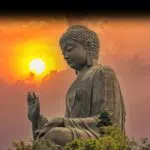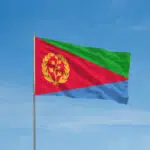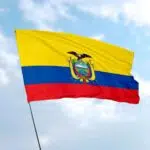Buddha Day is celebrated every first full moon of the ancient lunar month of Vesakha, which usually falls in May or June. This year, it takes place on May 24. Did you know that the United Nations began celebrating Buddha Day in its headquarters and offices in 2000? Buddha Day, also known as Vesak, celebrates Gautama Buddha’s birth, enlightenment (Nibbāna), and death (Parinirvāna) in the Theravada or East Asian tradition. The holiday is marked with religious ceremonies at temples, as well as meditation and reflection on Buddha’s teachings. Buddha Day is celebrated in countries where Buddhism is present, including core Buddhist countries such as Nepal, China, India, Sri Lanka, Thailand, and Laos.
History of Buddha Day
Buddhism can be traced back to the 5th and 6th centuries B.C. in India, where Siddhartha Gautama founded it. Historians believe Siddhartha Gautama was born into an elite family in the small Shakya Republic, which is now part of Nepal. Gautama gave up his inheritance after reaching adulthood and lived as a sramana ascetic, studying under various teachers. After six years of searching for a solution to human suffering, Gautama found enlightenment under a Bodhi tree.
Buddha spent the remaining 45 years of his life traveling the Gangetic Plains of north-central India, teaching his doctrine and establishing his religion. Following his death in 483 B.C., Buddha’s followers started a religious movement, and his teachings evolved into Buddhism. During the reign of Ashoka the Great (268 B.C. to 232 B.C.) of the Mauryan Empire (322 B.C. to 185 B.C.), Buddhism was established as the state religion of India, and it soon spread through Central and Southeast Asia, including China and Greece.
Buddhism gained more popularity in China and Sri Lanka than in India. Buddhist art, including anthropomorphic depictions of Buddha himself, began appearing in these countries between the second and first centuries B.C. However, the Huns invasion of India in the sixth century, as well as the spread of Islam during the Middle Ages, forced Buddhism into the background. In 1950, the World Fellowship of Buddhists held its first conference in Sri Lanka. During the conference, members agreed to formalize Vesak as the Buddha’s birthday in all Buddhist countries.
Buddha Day timeline
After achieving nirvana and bodhi, Siddhartha Gautama establishes Buddhism.
Buddha dies at the age of 80 after spreading his teachings across the Gangetic Plain of north-central India.
Ashoka the Great establishes Buddhism as the state religion and encourages its spread throughout India.
At the first conference of the World Fellowship of Buddhists, members agree to formalize Vesak as the Buddha's birthday.
Buddha Day FAQs
Why is Buddha Day celebrated?
Buddha Day, also known as Vesak, is celebrated to commemorate the birth, enlightenment, and death of Siddhartha Gautama.
What god do Buddhists worship?
Buddhists do not believe in any god. They mainly follow the teachings of the Buddha.
Where is Lumbini in India?
Lumbini is in the Rupandehi District of Nepal, Province five, close to the Indian Border.
Buddha Day Activities
Attend Vesak ceremonies at Buddhist temples
On Buddha Day, various Buddhist temples around the world observe the traditional Buddha Day ceremony, which involves hoisting the Buddhist flag and singing hymns in praise of the holy triple gem. If you are a Buddhist or are interested in Buddhism, you can join the celebration at a Buddhist temple near you.
Commit to the Five Precepts
The Five Precepts of Buddhism are rules that help Buddhists live moral and ethical lives. A faithful follower of the Buddha strictly adheres to these rules. If you haven’t followed these precepts in your life, you can use Buddha Day to recommit to them. This could include daily affirmations to observe them or regular meditation and reflection.
Give to charity
Following in the footsteps of the Buddha, you can use this Buddha Day to bring happiness to the lives of others. You can give gifts to the less fortunate, such as the poor, the aged, and the sick, or you can volunteer with a local charity organization.
5 Facts About Buddhism We Bet You Didn’t Know
Buddhism has no god
Buddhists are atheists who follow the teachings of the Buddha.
The word ‘Buddhism’ is western
Western scholars coined the term ‘Buddhism.’
The fourth-largest religion
Buddhism is the largest religion globally after Christianity, Islam, and Hinduism.
It is more of a psychology
Buddhism mainly revolves around meditation and mindfulness, making it more of a psychological practice.
There is no holy book
Buddhism, unlike other major world religions, has no holy book.
Why We Love Buddha Day
Buddha Day is a time of reflection
Buddha Day provides an opportunity for Buddhists to reflect on how they are leading their lives and to recommit to the Five Precepts. This has been shown to assist people in living moral and ethical lives while also reducing anxiety, depression, and stress.
It is an opportunity to positively impact others’ lives
Buddha Day entails assisting others in alleviating their suffering. Buddhists give gifts to the poor, the disabled, the aged, and the sick on this day. They also volunteer with charity organizations.
It’s a day to pay homage to the Buddha
Buddha Day encourages Buddhists to pay homage to the Buddha. Aside from offering flowers and incense, Buddhists honor the Buddha by strictly following his teachings and making life better for themselves and others.
Buddha Day dates
| Year | Date | Day |
|---|---|---|
| 2024 | May 23 | Thursday |
| 2025 | May 12 | Monday |
| 2026 | May 24 | Sunday |
















